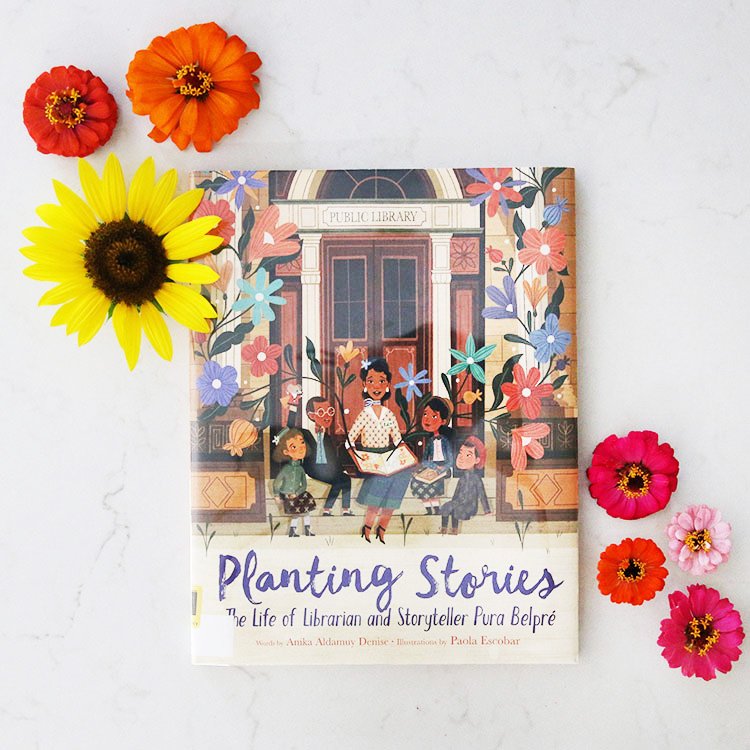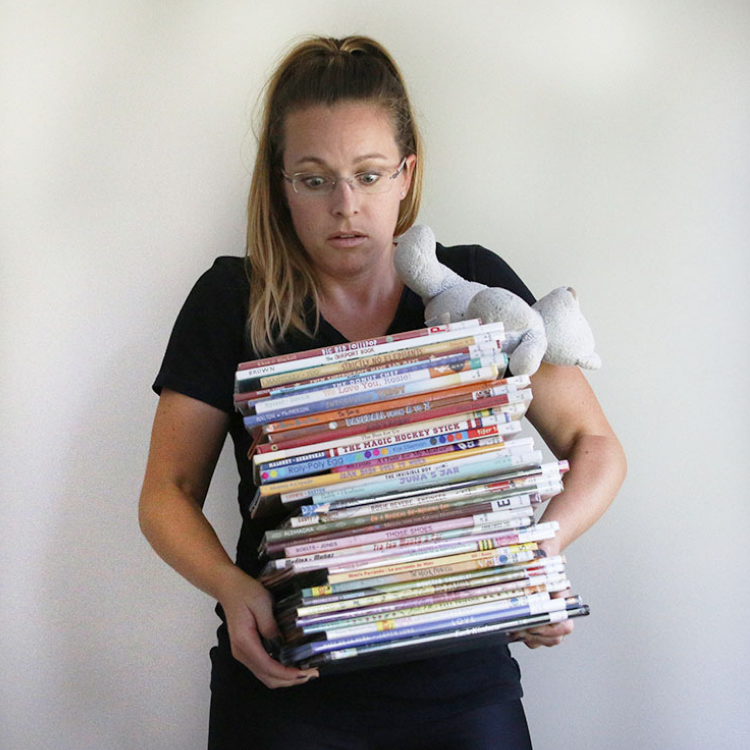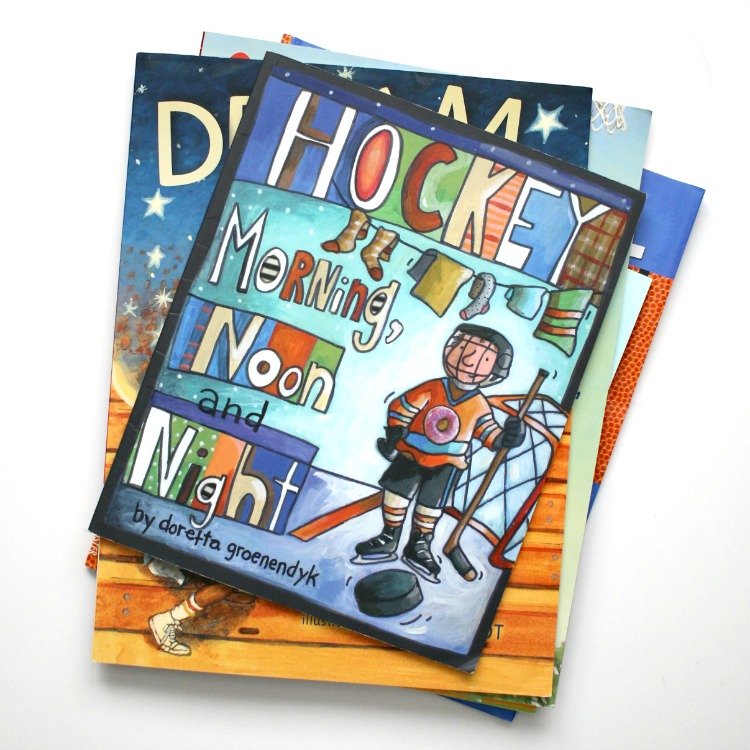Reading Lately | March Variety
Looking for a good book or audiobook to check out? Try one of these six books I’ve been reading lately. Also, check out the whole Reading Lately series for more reading recommendations. While the series started out covering a broader range of my latest reads, plan to see more books related to environmentalism, eco-friendly living, and sustainability going forward.
Here are a few books I’ve enjoyed lately that relate to caring for our planet and all the living beings that call it home. I hope you find one or two books that resonate with you as well.
A Note on Buying and Borrowing Books
We include affiliate links to books we recommend. If you purchase through one of these links, Honestly Modern earns a very small commission that has no impact on your purchase price.
If you can find the books from your local library, from a friend, at an independent bookstore, or through a used book shop, those sources are ideal. Using the library is zero waste, saves money, and saves space in your home because you can read all the books without storing all the books on your bookshelves. If you’re not sure of the best way to use your local library, check out these tips to make the most of your local library. With a little exposure, your kids will learn to LOVE the library!
If you prefer to listen to audiobooks, we recommend using Libro.fm, our favorite audiobook app. We’ve tried several audiobook apps and love that Libro.fm supports independent bookstores and offers a great user experience.
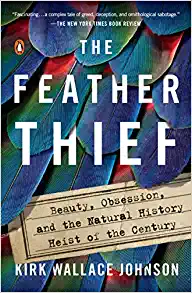
The Feather Thief: Beauty, Obsession, and the Natural History Heist of the Century by Kirk Wallace Johnson
Maybe it’s my eco obsession or my pure nerdiness, but I loved this book. It’s a beautifully written, nonfiction true crime book about the natural history “heist of the century.”
As a child, Edwin Rist developed a nearly obsessive passion for the art of tying salmon flies and other fly fishing ties. (I knew nothing of this Victorian-era, aristocratic hobby, but apparently, it has a small but fanatical following.)
Yearning for expensive feathers from exotic birds to use as materials in his salmon flies, Rist broke into a natural history museum in Britain and stole over a million dollars worth of bird skins whose feathers he planned to use in his tying artwork and sell to others in this tight-knit community.
The author went to great lengths to close this unsolved mystery that also eluded justice. If you appreciate the bounty of nature and the true crime stories behind the exploitation of some of the Earth’s most beautiful birds, you will more than enjoy this engaging story.
Genre Adult Nonfiction | Pages 336 | Length 8 hours 4 minutes
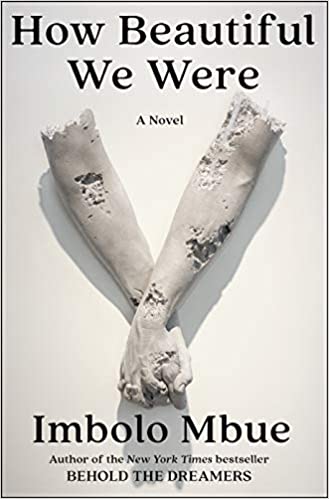
How Beautiful We Were by Imbolo Mbue
This is a story of American capitalism invading and destroying an African village in pursuit of oil. I initially picked it up looking to better understand the local implications on the culture and community of environmentally-disastrous oil drilling. I got so much more (in a good way).
Told from the perspective of a generation of children and the family of a girl named Thula who grows up to become a revolutionary, How Beautiful We Were explores what happens when the reckless drive for profit combined with the impacts of colonialism collide with one community’s determination to hold on to its ancestral land and a young woman’s willingness to sacrifice everything for the sake of her people’s freedom.
This book was so much heavier than I expected. As an American, it simultaneously crushes the soul and opens the eyes to the pain our gluttony inflicts. This book is about peace and war, love and hate, colonizer and colonized. It’s about the loss of culture to capitalism. It’s about revolution, fear, patience, intimacy, loyalty, and so much more.
It’s also about how corrupt governments led by vicious dictators serve foreign capitalist greed well.
Each of the narrator’s voices in the story sheds light on the ways they were uniquely harmed by Western capitalism and consumerism stealing land and life from them. While many of us have minimal insight into how our gluttonous consumption habits in Western countries impact others around the world whose resources we take with little regard, this book tells the story through the eyes of the people losing the resources with no recourse to protect themselves and their families.
Although the book is heavy and sad, I really appreciated the new perspectives it brought to me. The author’s beautiful and rich writing helps the reader connect with the atrocities experienced by those in the village. As we work toward divesting from fossil fuels (financially and culturally), this story is a poignant reminder of some of the expensive costs associated with our fossil fuel addictions.
Genre Adult Fiction | Pages 384 | Length
14 hours 7 minutes
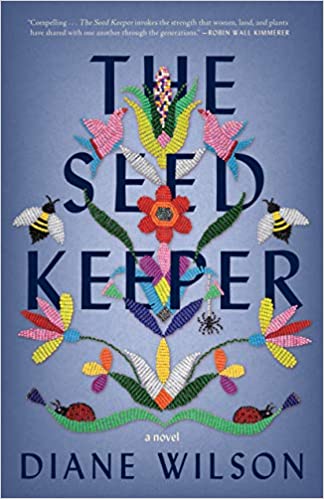
The Seed Keeper by Diane Wilson
Rosalie Iron Wing is a young Native American (specifically Dakhóta) girl growing up in Minnesota among a mixed community of Indigenous people and white descendants of white settlers. At a young age, Rosalie loses her parents and ends up in foster care with a white family who does not treat her well. In pursuit of a need to be independent and free of her foster family, Rosalie marries a white farmer from the area just as she finishes high school. Together, they have one son.
Weaving together voices from different generations of Rosalie’s Dakhóta family and community, the book tells the story of white settlers stealing the land from Indigenous communities, including Rosalie’s people, and the many facets of physical and emotional trauma incurred as a result of that theft.
As someone who grew up in Minnesota, not far from where this story takes place, it provides unique opportunities for reflection on the legacy of my ancestors who settled in Minnesota and likely benefitted from the harm done to Indigenous people in the area. However, it will speak to all those currently living on land once cared for by and the home to Indigenous peoples for thousands of years.
This book is beautifully written by the author, a Native American herself. In the same way that How Beautiful We Were personalizes the costs of fossil fuel extraction on a certain marginalized community, The Seed Keeper highlights the impact on people of a history of conflict between white settlers and Indigenous people. Although the story is fictional, I think it’s an effective way to help readers (like me) better understand the spectrum of pain and harm Indigenous communities endured and from which they continue to suffer as a result of colonialism.
Further, if you liked Braiding Sweetgrass by Robin Wall Kimmerer, I think you will very much appreciate this novel. Although the specific characters are fictional, the author went to great lengths to research historical circumstances and incorporate the experiences of her own family and ancestors who also lost land, family, and their culture to white settlers.
While Braiding Sweetgrass seemed to focus a bit more on the nostalgia of regenerative and restorative relationships with nature, this book also highlights the cultural relevance of Indigenous connections to the natural world though with a much heavier feeling. It focuses on the pain and suffering endured by the loss of connections with nature and the resources nature provided for Indigenous communities.
Indigenous communities have so much wisdom about how to care for people and the planet in healthy and regenerative ways. Books like The Seed Keeper and Braiding Sweetgrass help non-Indigenous readers connect to Indigenous cultures and, hopefully, better appreciate the extent of knowledge we can glean from their culture in collective efforts to care for the planet and our ecosystems.
Genre Adult Fiction | Pages 372 | Length
10 hours 42 minutes
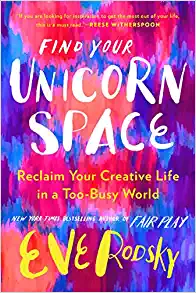
Find Your Unicorn Space by Eve Rodsky
As a follow-up to the author’s book Fair Play about balancing responsibilities at home between men and women, Find Your Unicorn Space speaks to women looking to connect with their creative spirit and find fulfillment in something more than their role as a professional, a parent, or a partner in a relationship.
For women feeling burned out or empty despite busy lives, I think this could be a great book to highlight opportunities for women to make time for their own pursuits. It lays a framework for making space for something more when a woman’s calendar is already jam-packed.
Even though Rodsky specifically tries to work around the issue, I felt the thread of privilege throughout the book. She touches on different socioeconomic groups in the book and suggests that her framework works across all economic levels. However, she doesn’t really dive into it too much.
That being said, I think there are a lot of women with privilege who still overextend themselves and could be a good audience for this book. No book is written for everyone; it’s ok that a book has a particular audience and doesn’t necessarily serve everyone. This book received 3.5 stars on Goodreads (at the time of this post) and has a range of mixed reviews, which I think is a reflection of the fact that it’s a perfect book for some and won’t resonate with others.
I included this book on the list because I think a Unicorn Space could overlap with an environmental or conscious living passion. For example, WasteWell and this blog were both born out of my own creative passions that I tied together with eco-friendly living.
Rodsky specifically mentions that a Unicorn Space does not have to generate income – and most likely won’t. This blog definitely didn’t generate any income for many years (haha). But the book might help some women make space for the sustainability-related passions they want to pursue but haven’t made time or space for due to guilt, other commitments, or whatever other barriers have been obstacles so far.
Related Reading: Sustainability Side Hustles
Genre Adult Nonfiction | Pages 336 | Length 8 hours and 51 minutes
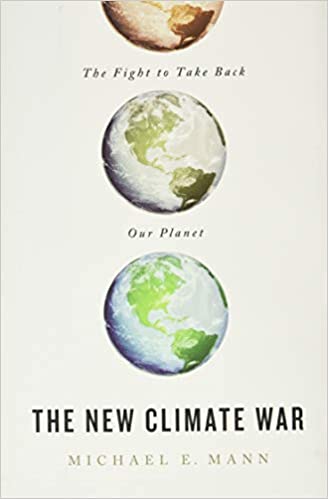
The New Climate War: The Fight to Take Back Our Planet by Michael E. Mann
Climate change deniers are a dying breed. The science is simply stacked too strong against their fiction. However, former climate change deniers, who are often front groups for fossil fuel interests or fossil fuel organizations themselves, have new tactics to deploy.
Instead of an outright denial, those with a vested interest in maintaining the fossil fuel status quo have done an about-face. Now, while admitting that climate change is real, they instead suggest ineffective or shortsighted solutions in the hopes of deterring any real progress on eliminating fossil fuels from our global energy mix.
In this book, Mann argues that we must be attuned to these ploys to detract from feasible, just, and reasonable long-term solutions that effectively end the fossil fuel reign. In some cases, fossil fuel interest groups and those doing their bidding are heavily promoting high-risk options like geoengineering instead of true, effective, and long-term solutions like decarbonization. They deflect blame away from corporations and larger systems toward individuals, with the intent of burdening individuals so heavily with the responsibility that they fear the personal costs of a decarbonized society and economy.
Oddly enough, far-right fossil fuel-driven interests have co-opted far-left doomism and alarmism to stymie progress. Deflectors and detractors seek to convince the general public, by referring to extreme environmentalist positions, that our climate situation is so dire that we have no agency to address it. They hope to paralyze the public with fear to prevent any real change from impacting fossil fuel profits and markets.
I suspect some environmentalists, especially those who lean farther left and are more progressive, may criticize the author for his support of policies like carbon pricing. They likely view this as leaning too far into capitalism and neoliberalism. Mann’s ideas and positions do rely on market-driven solutions to some extent, and there is sufficient reason to believe that capitalism has played a large part in driving forward the gluttony and overconsumption that led us to the current climate crisis. It’s fair to be skeptical of capitalist solutions to solve problems caused by capitalism.
However, market-driven solutions are more politically-centric alternatives that are palatable to a large majority of citizens and might succeed as effective compromises. In the end, the only solutions that will matter are the ones that have sufficient support to actually be executed, even if those solutions aren’t the quickest or most extreme responses to our deteriorating climate situation.
If you’re looking for a climate action book that appeases a collective middle ground, calls out the worst actors against climate action, and discusses some of the market-driven solutions that have a reasonable chance of finding bipartisan support in politics, I think you’ll enjoy this book.
Genre Adult Non-Fiction | Pages 368 | Length
10 9 hours 48 minutes

Jen Panaro
Jen Panaro, founder and editor-in-chief of Honestly Modern, is a self-proclaimed composting nerd and advocate for sustainable living for modern families. To find her latest work, subscribe to her newsletter, Stepping Stones.
In her spare time, she’s a serial library book borrower, a messy gardener, and a mom of two boys who spends a lot of time in hockey rinks and on baseball fields.
You can find more of her work at Raising Global Kidizens, an online space to help parents and caregivers raise the next generation of responsible global citizens.

